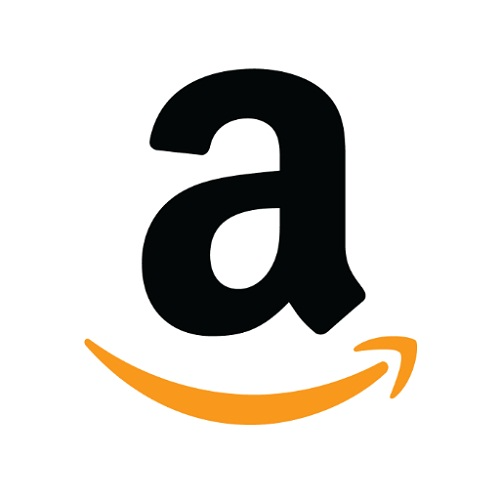How I Started A $150K/Month App Agency That Works With The Fortune 500
Hello! Who are you and what business did you start?
Hello, my name is Michael Georgiou, and I serve as a Co-Founder and CMO at Imaginovation. We are an award-winning technology and app development company located in Raleigh, NC.
We provide custom enterprise-grade technology solutions to a variety of businesses in any industry, from funded startups to Fortune 500 companies. Our services include building custom web applications, mobile apps, and emerging technologies such as AI development, IoT development, AR & VR app development, and blockchain development.
I founded Imaginovation with my best friend and brother-in-law Pete Peranzo back in October 2011. Since then, we have helped a lot of companies boost their productivity, customer base, sales, and profit with our client-centered development approach.
Clutch, a leading online B2B platform, has recently named Imaginovation as one of the Top Technology Company in North Carolina.
Since 2011, we have grown an average of over 40% in revenue every year. We have won several credible tech awards, such as AVA Digital Awards, IMA 2017 Award, The American Business Award, and NC Tech Award for our innovative services. We have also been featured in top publications such as Entrepreneur, VentureBeat, Goalcast, Business.com, and Foundr.

What's your backstory and how did you come up with the idea?
So, it all started back in 2011. I had finished my Master's degree in Australia and came back to the US. The Great Recession of 2008 had just ended, but I didn't have a job as the economy was in bad shape, and the market was not good. At the same time, Pete was struggling as well in regards to working two full-time jobs, 16-18 hours a day. Pete was working at SAS and had realized that he wanted to do something bigger, build something of his own.
Pete and I met through one of our mutual friends but little did we know that we will become such great friends and business partners.
One day Pete called me very randomly and asked if I want to start a company. "Wait. What?" I was both excited and confused. I always had a dream of starting my own business and put my marketing knowledge to work. But, both of us didn't have any experience in building a business initially.
Some of Pete's friends, who were software developers and web developers, and also jobless at that time but were happy to join us for a few months working for free, until we were able to close some business. So we all decided to set up a full-service web and mobile app development company to help businesses achieve their true potential through innovative technology.
Being an entrepreneur is not easy, we learned things through tons of trial and error and consistent hard work.
Then we started mulling over the company name, and I thought a great slogan for our company would be "Imagination turns innovation," and the name "Imaginovation" quickly popped in our mind. That's how Imaginovation came into existence.
Imaginovation was branded in a way to meet the personalities of Pete and myself, defining our characteristics as well as what makes us different. Our slogan "Imagination turns to Innovation" which is a balance between business creative and strategy (Mike) who guides our clients to understand the business initiatives and goals for what they are trying to achieve and the creative solutions being presented to them.
The innovation side (Pete) represents the technical and execution side of the company, where our experienced coders and engineers have done the impossible for many clients, and essentially turn your idea and concept into a digital reality reflecting our service offerings. This personality has digitally transformed our current website into an outer space type theme since space portrays limitless possibilities of thought and imagination. This was the thought process behind our branding and story, which has helped fuel our business growth.
Describe the process of launching the business.
In the beginning, we were posting on Craigslist and trying different types of free advertising. We grew our company organically through hard work and perseverance. We started getting some projects, but it was not enough. We were still struggling very hard, so much so that Pete had to continue working and hustling at two jobs (Imaginovation and SAS) for almost five years since the inception of the company in order to keep the business up and running.
We started Imaginovation from NOTHING. We built this company through hard work and dedication. Most of the revenue generated from our clients was invested back into the business to scale up the operations, sales, marketing, employees, and building up our overall presence and credibility trying to penetrate the market.
Initially, we also didn't have the funds to hire people, so we would often take crazy initiative, learn, do things on our own, and essentially wore every hat. We spent countless sleepless nights with our team to meet our clients' expectations as well as meet very tight project deadlines.

As we grew in revenue, it was a continuous process to take the smallest salaries possible and pour everything back into the business in order for it to grow organically. As time went on, our local presence in the market grew, we started to close more frequent and larger clients that allowed us to scale the business accordingly, but scaling the business was also another “business obstacle” tackled on its own.
Make sure to strategically test out your audience on different social platforms, analyze the data, eliminate the ones that aren’t giving back value. It’s all about data-driven decisions.
Being an entrepreneur is not easy. You have to make a lot of sacrifices and fight your way through some of the toughest obstacles in order to see your business flourish. We didn't know much about entrepreneurship when we started, but we learned things through tons of trial and error and consistent hard work.
Since launch, what has worked to attract and retain customers?
Since Imaginovation’s inception to its current state, we have continuously taken extra effort to build and improve our brand value. Initially, as stated earlier, we aggressively promoted our services through Craigslist ads and other free business directories. We would reach out to hundreds of people every day through email, and then after about one month, leads started to increase. Those were the leads that helped us kick-start our and essentially grow our business. We figured out ways to provide value to almost any lead in order to grow our portfolio, clientele, and trust and credibility in this over-saturated market.
We also attended many local events in Raleigh, Cary, Charlotte, and Durham to show our faces in front of potential leads and prospects. Reaching out to local businesses digitally and in-person helped us build momentum, give us a face, and build a presence around our local area.
We had a handful of projects after about six months of starting our company, and then we decided to drastically enhance our website and start marketing it across North Carolina. We developed our website, setup the social channels, and started posting helpful and insightful blogs, and socializing them. The mistake we made here was instead of strategically testing the user engagement and audience per social platform, and target and write for those specific social channels. We kept posting on all platforms which were incredibly tedious, stressful, and resource intense.
So, my advice is don’t try and be everywhere for a long period of time unless you have an execution plan and team of people to help in place to execute that plan. Make sure to strategically test out your audience on different social platforms, analyze the data, eliminate the ones that aren’t giving back value, and adapt your social strategy accordingly and keep pushing out high-quality content consistently. It’s all about data-driven decisions.
Our primary focus was building an SEO-optimized website that drastically established a valuable online presence. I used to research, read, and chat for hundreds of hours with my friends and marketing experts about digital marketing, trying to understand SEO, content marketing, PPC, social media ads, and so on. I also spent countless hours learning Google algorithms, Google trends, and analyzing top service providers and competitors in our domain.
The learning and analysis allowed us to create SEO-friendly content for our website and improve competitive Google rankings organically over time. Eventually, with our combined SEO strategies, our website began ranking on the top of Google in North Carolina and even nationwide for many competitive keywords. This generated thousands of unique visitors per month to the website, which translated into leads, and eventually clients.
Always show empathy and compassion to your clients and employees. You would be surprised how far this takes you in business and in your life.
When you're a startup, you have to plan your marketing campaigns carefully. It's not just about attracting new customers; you have to build a positive brand persona. We also tried paid ads such as Google AdWords, Facebook, and LinkedIn ads. Unfortunately, they didn't work too well for us in regards to lead generation. We ran Facebook campaigns consistently to increase our followers and generate targeted visits to our website and most importantly for branding purposes.
How are you doing today and what does the future look like?
Today, we are doing well in regards to our company culture, sales, and value-based development for our clients. Our team has scaled into a technology-focused company that has clearly made a huge impact and threat to the app development and software market.
Currently, due to continuous grinding, hustling, learning, and past ups and downs over the last eight years have driven us to be a much more strategic, data-driven, and process-oriented company. We now know who to work with and who not to work with in regards to our clients, our development team guides and directs all of our clients allowing the applications we build for them to offer more value in their target markets and ultimately be more successful.
Over the past eight years, we have received this amount of clients and leads:
Number of Clients and Projects (Sometimes, we receive more than one project per client) - 200+
Number of leads - 2000+
Over the past eight years, we have generated our leads and clients from the following marketing and sales channels (%):
- Google Organic (SEO) - ~80%
- Referrals and account management - ~10%
- Strategic Partnerships - ~2%
- Events/Networking - ~3%
- Paid Advertising - ~2%
- Social Media - ~3%
In addition, we have become more value-based with a client-first approach to all of our projects, current and new. It’s critical to be mindful and understand how important your current customers are, how you should treat them with honesty and transparency, and the overall value needed to provide to them in order to be long-term clients. In regards to all of our new clients and lead generation systems, our internal sales and marketing team is more strategic, data-driven, process-oriented, and focused on how and who we are targeting, branding, and marketing ourselves to/as. If something doesn’t work overtime, we adapt accordingly and change the strategy or approach. A good example of our marketing evolution is since we don’t offer digital marketing and PR services, we have generated and built over 15 strong and trustworthy partnerships with credible agencies around the world that essentially don’t offer technology and development services, so there is very little overlap between us. The partnerships constitute of referral partnerships, collaborate/joint partnerships to pitch potential clients and other creative partnerships.
Personally, I and my business partner have developed very thick skin and can essentially handle any type of obstacle or challenge that comes our way. This is vital to have as a leader and business owner. You need to be able to handle the downs and dark days whilst growing and scaling any type of business.
The future for Imaginovation is extremely bright as we have improved on past mistakes and executed new plans, directions, and strategies that have set us up for success and growth opportunities. We plan to scale the company at a much more realistic rate allowing us to plan, adapt, and evolve accordingly.
Furthermore, the improvements we’ve made the last few years have been significant, such as focusing on developing new technologies such as artificial intelligence, blockchain, and mixed reality. We also plan on building some trendsetting and unique products that will revolutionize a few different spaces.

Through starting the business, have you learned anything particularly helpful or advantageous?
Just like any business, we made tons of mistakes, and some I wish we could take back.
Some of the biggest mistakes/poor decisions we made are the following:
- Not taking our time, patience, and process to hire correctly. We hired way too quickly sometimes.
- Taking too long to let employees go that were harming our business or weren’t a good fit.
- We hired new employees based on the assumption that new sales and revenue was going to be generated in the near future. Do not play “the role of God” and assume new deals will close, and allowing yourself to go on a hiring spree. Only hire based on your current financial situation, comfort level, and monthly cash flow. Project cash flow is good to be mindful of, but it shouldn’t be used to determine when to hire new people.
- We kept working with clients that were harmful to our business because of financial desperation sometimes but hurt us in the long-run. Sometimes you have to let your clients go and part ways, it will benefit both parties.
- When times were great financially, from time to time we neglected the smaller potential clients. Sometimes these smaller clients are your bread and butter, this is something to really be aware of.
- In the later years, we scaled too quickly regarding the size of our team and newly incurred expenses, and sales were difficult to catch up with.
- We let our emotions take over, stress us out, and not make the best business decisions. It’s important to not be emotionless, but in a sense not let your emotions and personal feelings dictate your business decisions.
- At times we tried to focus on too many different things, trying to do too much, which tends to clutter up the organization of other effective strategies, processes, and tasks at hand. Stay focused and don’t try to take on more than you can handle, as it can negatively impact your growth and create confusion within the company, and ultimately cause delays in achieving your goals.
Some of the best decisions we made:
- I and my partner never gave up and believed in the business. We were in it for the macro and not the micro. Success is a long-term game, a marathon, not a sprint.
- We consistently communicated to our clients and employees with honesty, transparency, and professionalism.
- During the toughest storms and obstacles in the company’s journey, I and my partner worked together, trusted, found solutions, and executed to new directions setting up the company again for success.
- We always showed empathy and compassion to our clients and employees. You would be surprised how far this takes you in business and in your life.
- We are always trying new things, whether it is creating and executing new internal marketing and sales strategies, or new processes to implement with our developers.
- We never stayed stagnant in regards to our solutions and services offered, we continuously kept up with the technology market such as Artificial Intelligence and Internet of Things, making us unique and engaging to current and new clients.
- Starting a podcast called Tales from the PROS, which has generated amazing relationships with some of the world’s top business leaders.
- We’ve maintained good relationships with our clients and took care of them.
- We empowered our employees' skills, capabilities, and set them up for success.
- We found creative ways to stay lean allowing us to weather downtimes.
What platform/tools do you use for your business?
We use a wide array of tools for different purposes. Our team of developers use Swift, Java, GoLang, AWS, CMSs like WordPress. On the sales side, we use Hubspot CRM to manage our sales and lead generation efforts. We also use Hubspot for content marketing and email marketing.
On the marketing side, our team of SEO analysts use SEMRUsh and Moz for keyword research, website traffic analysis, and create data-driven marketing plans. We also use Google Analytics and Google Search Console to measure the performance of our organic and paid campaigns.
We have 40+ full-time employees working remotely. Our project managers use JIRA to assign tasks to individual team members and track progress. We also use Slack for our internal team discussions.
What have been the most influential books, podcasts, or other resources?
I personally don’t read that many books, but I should, lol. I receive a lot of inspiration from reading and engaging with digital content, blogs, videos, and podcasts. Some of my favorite mentors and leaders are Tony Robbins, Gary Vaynerchuk, and Neil Patel. I gain a lot of insight and knowledge from hosting my own podcast called Tales from the PROS, in which I interviewed top business and thought leaders around the world sharing their stories of inspiration, success, and struggles. Some of the amazing leaders I have interviewed are Neil Patel, Chris Do, Hashem Al-Gaili, Michaela Alexis, Evan Carmichael, Jay Baer, and many more.
Advice for other entrepreneurs who want to get started or are just starting out?
My advice for entrepreneurs that want to get started:
If you are an aspiring entrepreneur and looking to pursue an idea or concept or for entrepreneurs that just got started, my advice is this:
Make sure your idea and concept is something that reflects what you are really good at, such as your skillset, capabilities, and strengths. Most importantly it needs to reflect your life’s purpose, and in my personal opinion, your purpose should be driven and derived by your passion.
Passion is essential in preparing your mind for the rough and tough road ahead. Passion and joy in your pursuit are going to get you through the hardest times during your entrepreneurial journey. It’s so vital to set expectations for yourself that when you are about to start your journey, have realistic expectations and patience that success (whatever that means to you) is going to take time.
As I mentioned before, starting anything great and growing it to a high level is a “macro” game, not a “micro” game, it’s all about thinking long-term and executing on your passionate ideas that provide value to others and solve problems. Remove the instant gratification from your head and just work hard, persevere, always be honest and kind, and make it a goal to continuously adapt, evolve, and improve on yourself and on your business every day. Starting, growing, and scaling a business is a huge mental game, so make sure that you are right mentally and emotionally before you “go all-in”.
I advise you to prepare a huge task list, of course, this should come after you have created a well thought out business plan, and ensure you complete and execute one task at a time. As entrepreneurs, we want to get a thousand things done at once, and many times it becomes so overwhelming that you see an Mt. Everest of issues and tasks to complete, which becomes incredibly stressful. So, to unclutter your mind, take it one task at a time, and one day at a time. Make sure you set goals for you and your team to achieve and create weekly tasks that are realistic to be completed. As you start to see progress internally, you will start to see progress externally such as generating new leads, closing new deals, building long-term relationships, and scaling your business.

Another piece of advice that I learned and want to share is to pay VERY close attention to your finances. One of the biggest reasons why startups fail the first few years is because of a lack of cash flow and making horrible financial decisions. I know we all want those big salaries, but that takes time with your own business.
Strategically, you should be paying yourself depending on the business cash flow, but most importantly always be reinvesting your revenue and a lot of your profit back into the business. Being an entrepreneur is kind of similar to raising a child, you have to build a solid foundation for the baby, nurture and love it daily, make sacrifices, invest lots of your time, money, and effort in order for it to grow. Making mistakes will be very normal during the process, but as long as you keep learning, growing, and improving you will persevere.
When it’s all said it done, do it because you love it, have the right intentions, work very hard, and keep improving and you will start to reap the rewards. I am not even talking about financially, but you will feel that your purpose and passion is leaving this world in a much better place than when you found it.
Are you looking to hire for certain positions right now?
We are now fully staffed as we recently hired additional mobile and web app, developers. But, we are always looking for new and passionate talent.
Where can we go to learn more?
If you have any questions or comments, drop a comment below!

Download the report and join our email newsletter packed with business ideas and money-making opportunities, backed by real-life case studies.

Download the report and join our email newsletter packed with business ideas and money-making opportunities, backed by real-life case studies.

Download the report and join our email newsletter packed with business ideas and money-making opportunities, backed by real-life case studies.

Download the report and join our email newsletter packed with business ideas and money-making opportunities, backed by real-life case studies.

Download the report and join our email newsletter packed with business ideas and money-making opportunities, backed by real-life case studies.

Download the report and join our email newsletter packed with business ideas and money-making opportunities, backed by real-life case studies.

Download the report and join our email newsletter packed with business ideas and money-making opportunities, backed by real-life case studies.

Download the report and join our email newsletter packed with business ideas and money-making opportunities, backed by real-life case studies.












